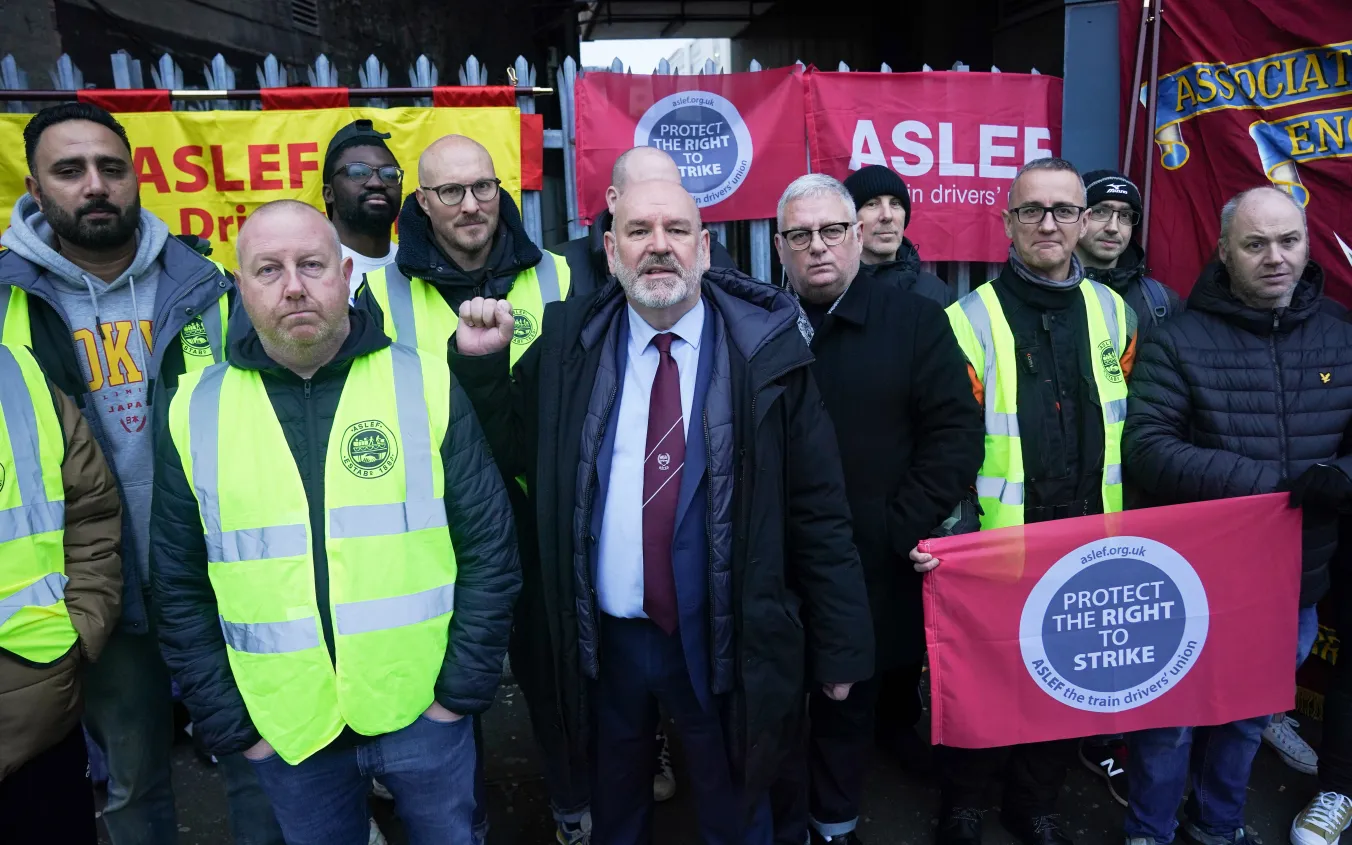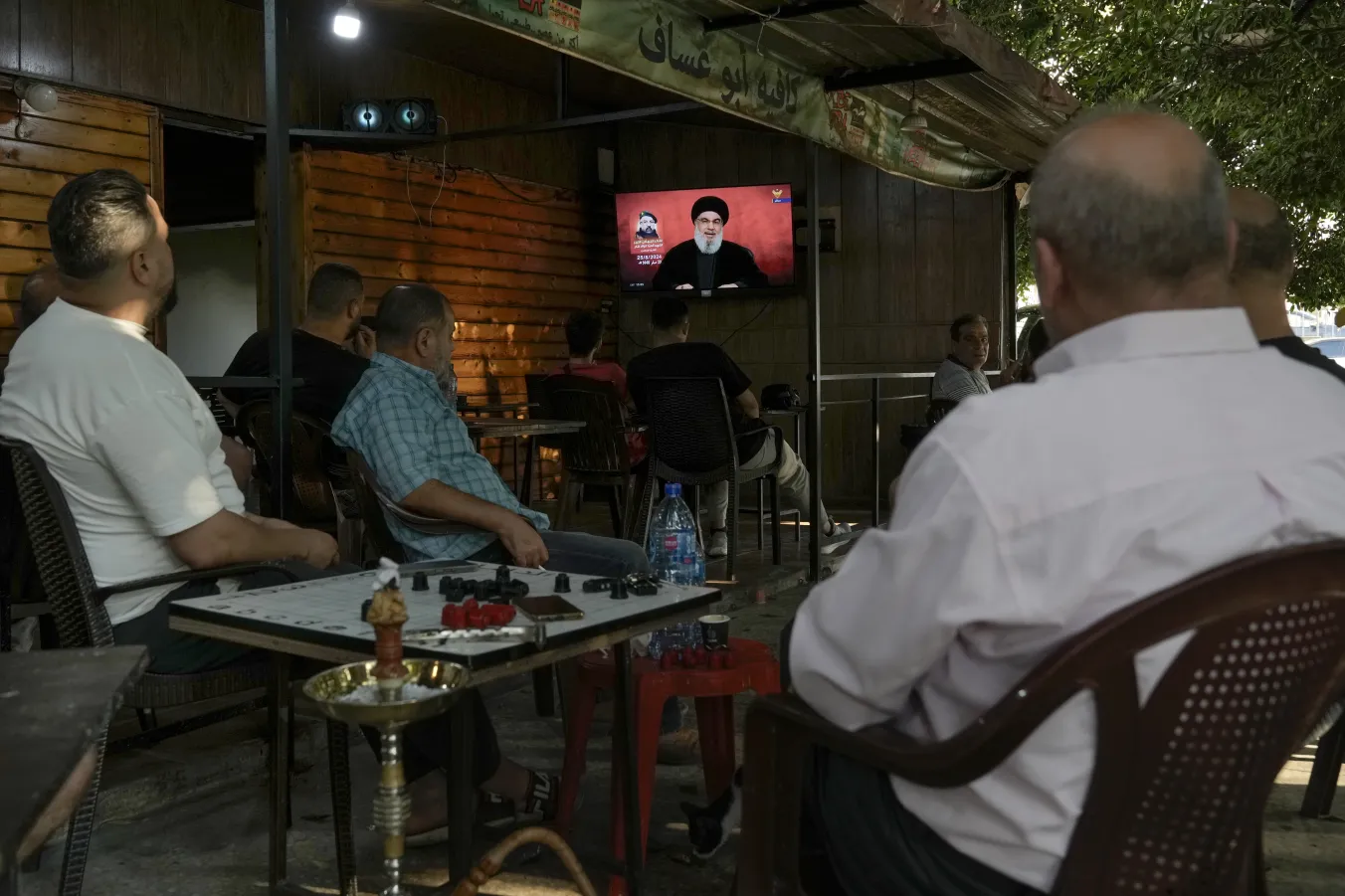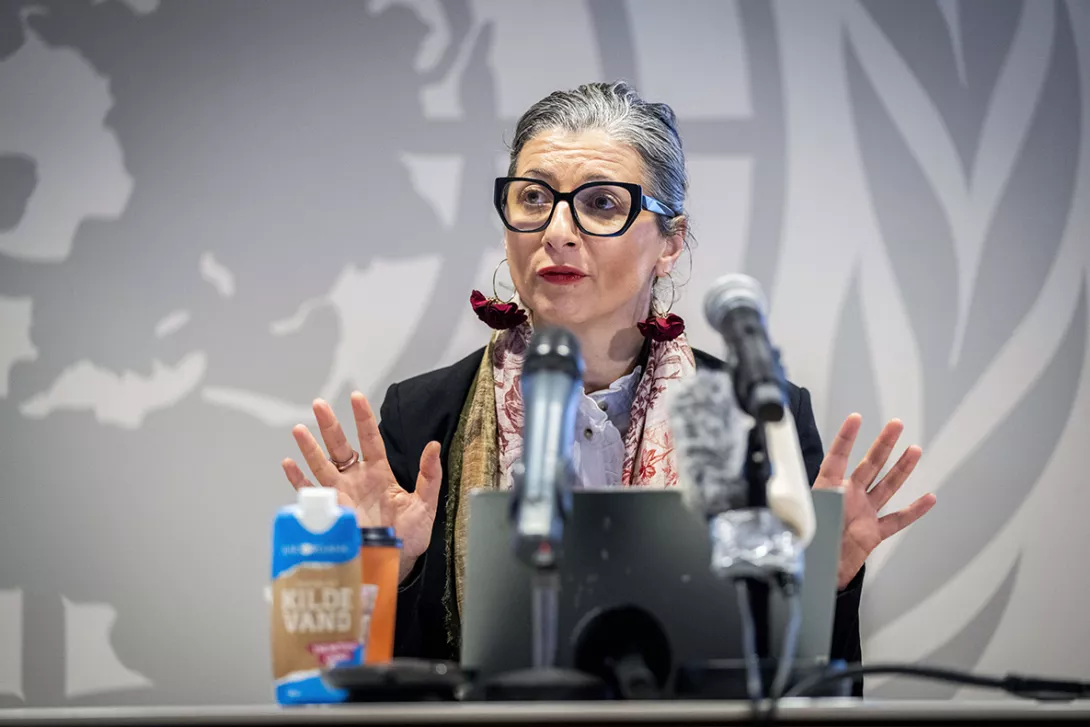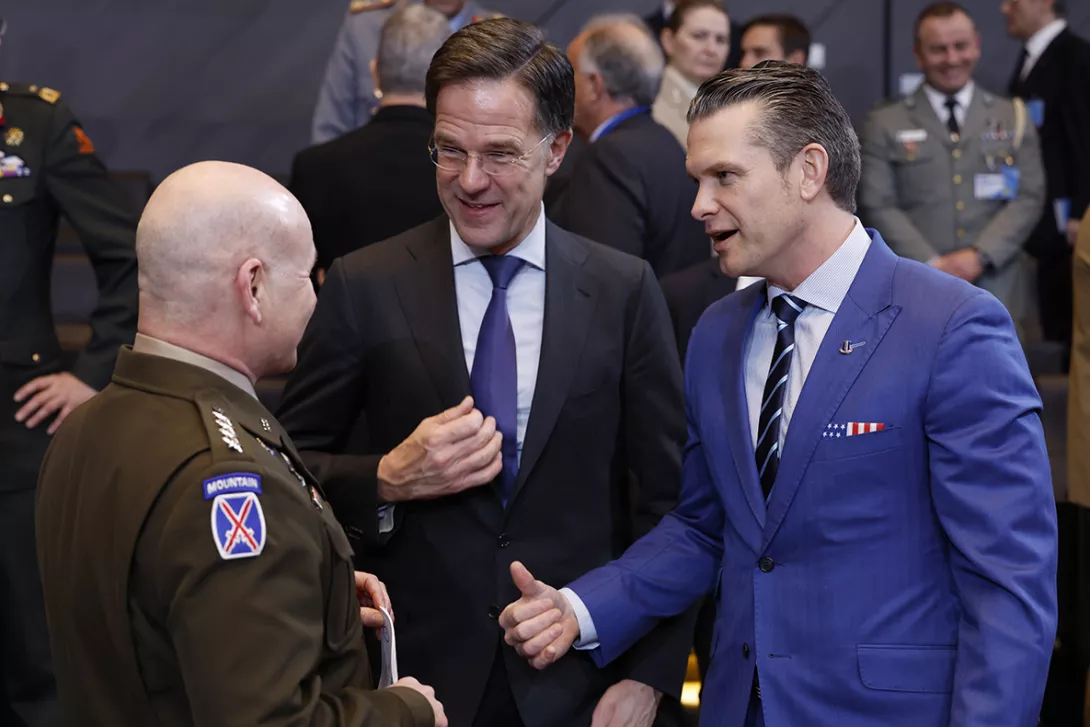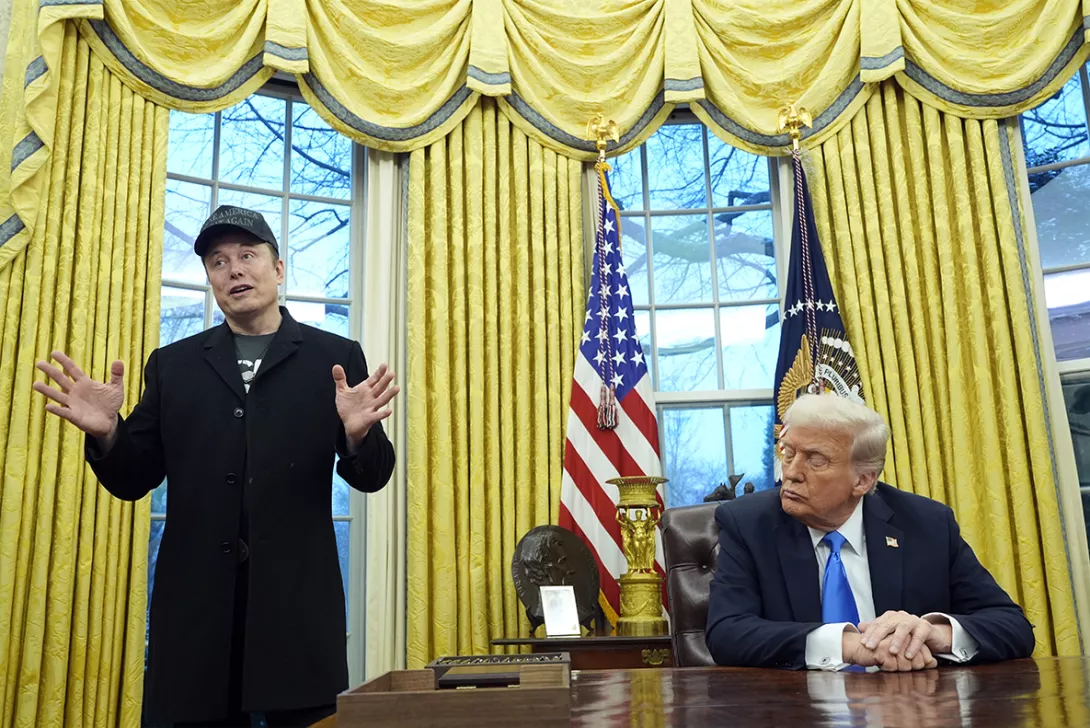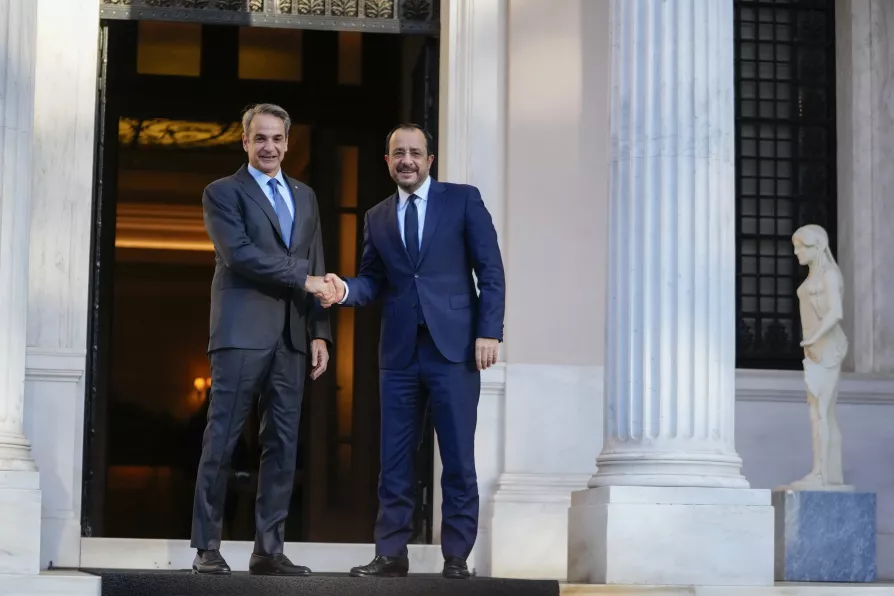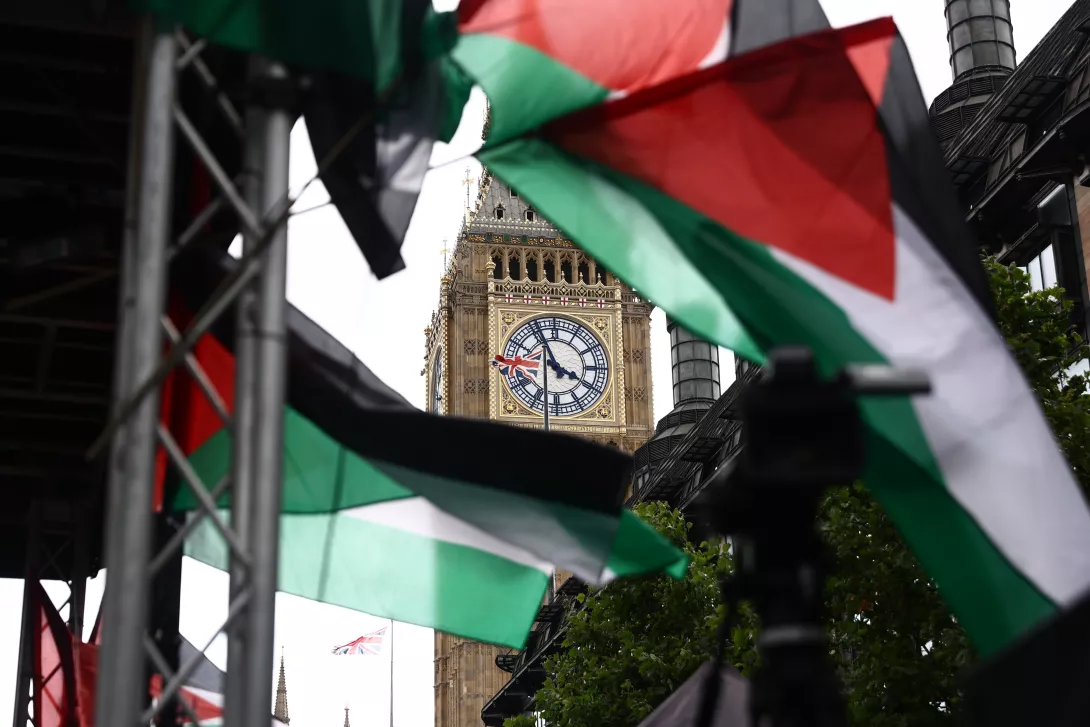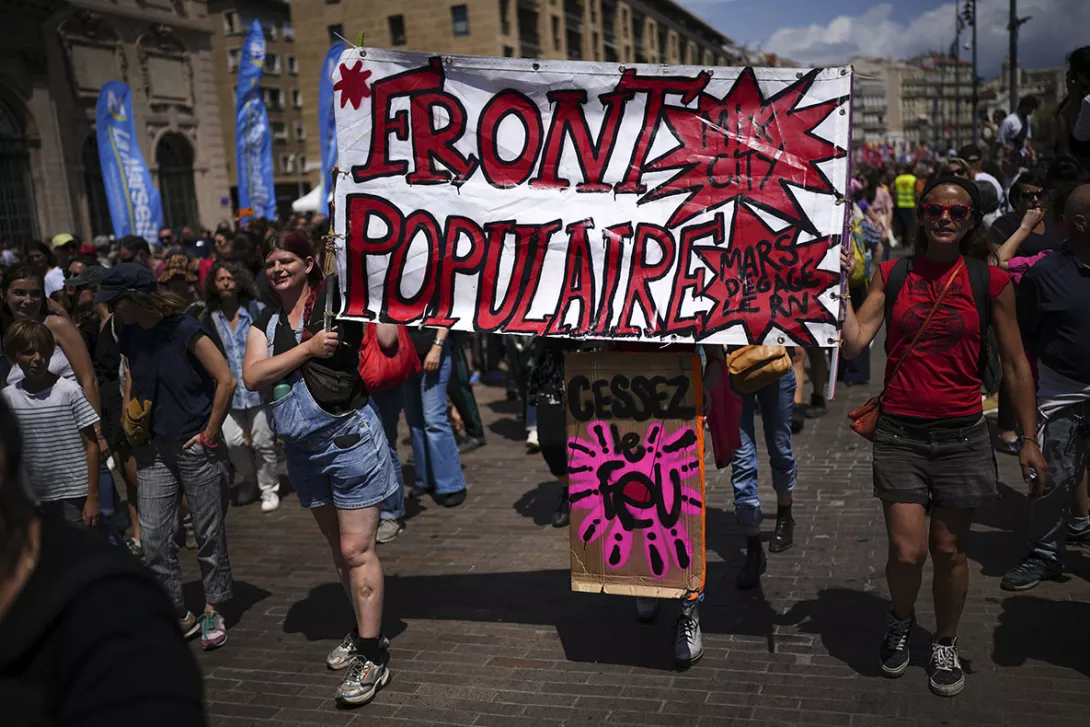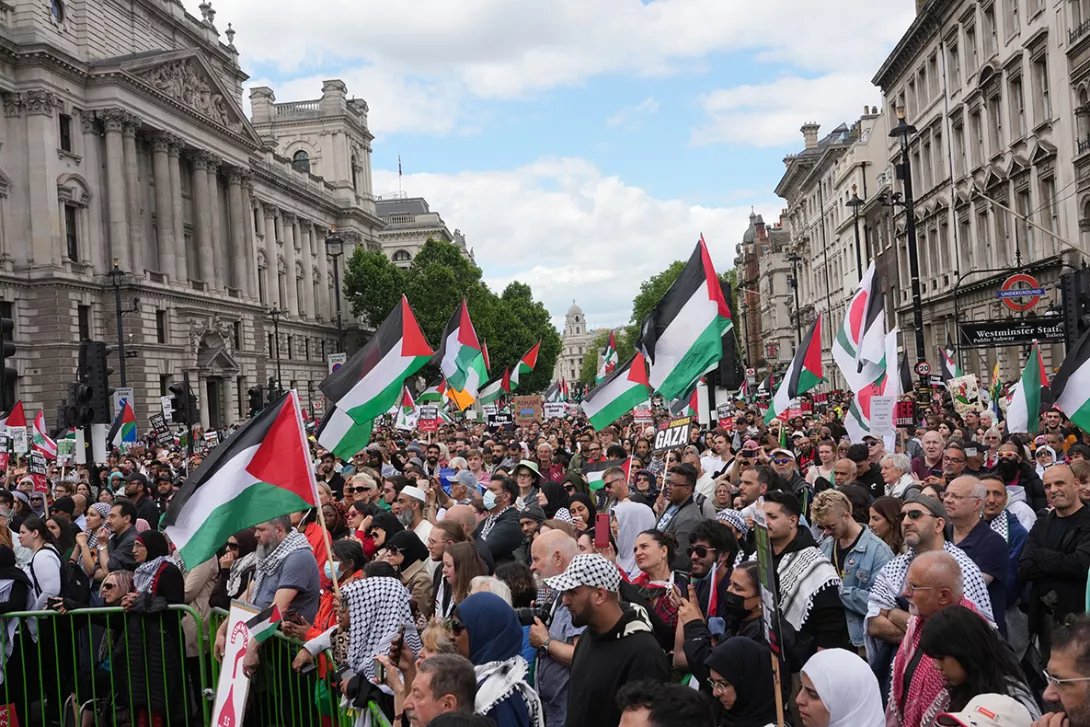
FRANCE’S snap elections present voters with choices on the big issues.
Confront corporate power and the long decline in working-class living standards with the Popular Front, or opt for extreme nationalism with a far right that — like Nigel Farage here — wants to turbo-charge the privatising policies of the existing elite (in Farage’s case the mask slipped with the NHS; for France’s National Rally, in pledges to sell off the public broadcaster).
Fight for a renewal of democracy and confront the authoritarian drift of Western politics, or back the heirs of fascism.
And articulate outrage over Israel’s war on Palestine — or opt not to do so. Socialist Party careerists have tried to tie the Popular Front to existing US policy on Israel and Ukraine, but the mood at its mobilisations is clear, with Palestinian flags and chants prominent. Jean-Luc Melenchon’s France Unbowed, a leading force within the Popular Front, established its credentials in the last parliament with deputies trooping in dressed in the colours of the Palestinian flag after two were censured for displaying it in the chamber.
What a contrast to Britain’s election, which has almost been an excuse for the political caste to stop talking about an ongoing genocide that has provoked, on our streets and in our communities, the biggest peace movement our country has seen in two decades — arguably ever.
The size of the successive national demos, the universal reach of the movement seen in the scores of cities, towns and villages in which Palestine solidarity activities are taking place, and the hit taken by Labour candidates in areas with large Muslim populations at this year’s local elections, all point to Palestine’s political significance — yet the identical Tory and Labour positions on the war allow Establishment media to skirt over it.
That’s unacceptable. The death toll climbs daily, the political dislocation from the war worsens. Israel, which saw huge rallies for peace, a prisoner exchange and elections to remove Benjamin Netanyahu on Saturday, is now seriously dysfunctional as a state.
Army chiefs openly dismiss the Prime Minister’s war aim of destroying Hamas as an impossibility, perhaps motivated by the rising, and under-reported, number of badly wounded soldiers, many with life-changing injuries in what remains a small state reliant on conscription to maintain its tyranny over Palestine. Netanyahu has had to dismiss a War Cabinet he could not control; his fascist coalition partner, Itamar Ben-Gvir, has ordered police not to interfere when mobs attack international aid convoys that his own government has authorised to access Gaza.
Internationally, the war threatens to spread: with Israel threatening assault on Lebanon, and Lebanon’s Hezbollah warning of a possible attack on Cyprus — whose RAF bases facilitate the US flow of arms to Israel, a clear example of how British imperialism risks dragging another state into a conflict in which it is neutral. Small wonder Cyprus’s communist party Akel has redoubled campaigning to free Cyprus of Britain’s dangerous and parasitic military presence.
The Palestine Solidarity Campaign has published questions all parliamentary candidates should be asked, and encourages organisation of local hustings on Palestine. Tory and Labour candidates already show a marked tendency to duck public hustings — in Islington North neither dared go head to head with Jeremy Corbyn on the NHS, and on the Palestine issue many cite “security” as a reason not to attend.
Some hustings are called off when candidates of the major parties refuse to participate.
This can be a practical necessity, but should be avoided if possible: the gulf between the people’s concerns and Westminster politics must be exposed if it is to be tackled, and if that means Tory and Labour candidates are conspicuous by their absence when their communities debate the most pressing questions, so be it. While our politicians duck and dive, Palestinians are dying: nobody should be allowed to forget that fact.
